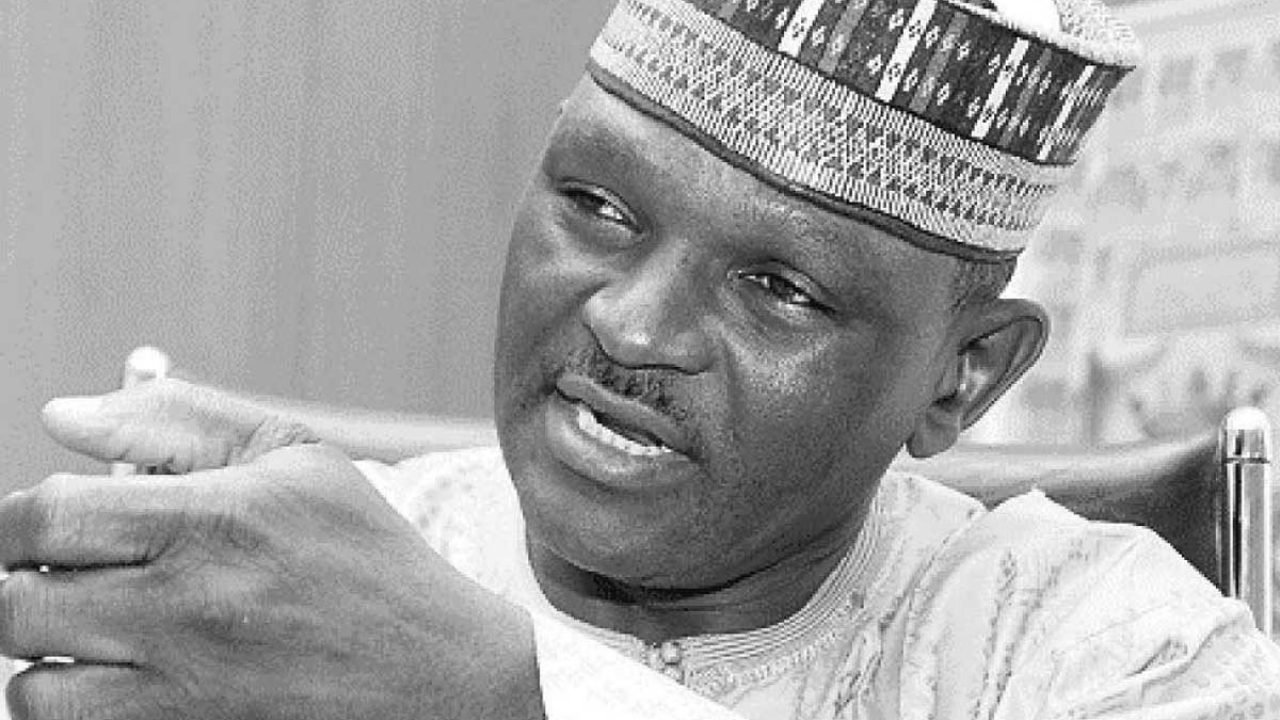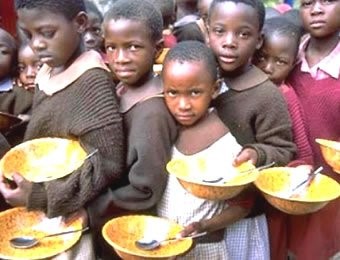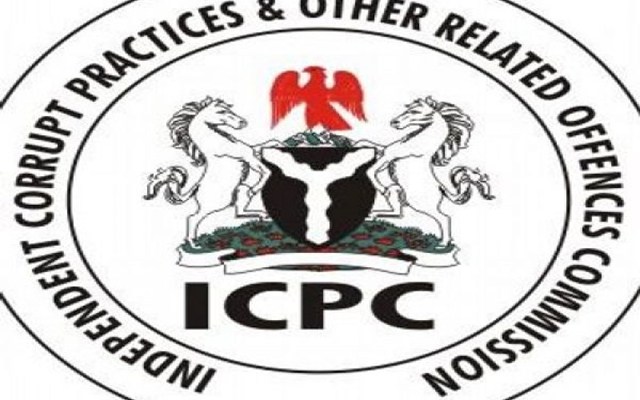With the year 2020 just a matter of hours away, Nigeria like other countries around the world is gradually counting its gains and losses in the outgoing year, 2019.
While it can be said that the country barely made any appreciable progress economically, however, going forward, the challenges of a struggling economy still stares us in the face.
Despite the peculiar challenges of an election year and consequential effects on the economy, recent data from the National Bureau of Statistics (NBS) showed that real Gross Domestic Product (GDP) grew by 2.28 per cent in the third quarter of 2019, compared with 2.12 and 1.81 per cent in the preceding and corresponding quarters, respectively. The improved growth was driven largely by the performance of the oil sector, which grew by 6.49 per cent, while the non-oil sector grew by 1.85 per cent.
The Manufacturing and Non-Manufacturing Purchasing Managers’ Indices (PMI) also expanded for the 31st and 30th consecutive months at 58.2 index points apiece in October, 2019. Further projections indicate that real GDP in fourth quarter 2019 is expected to grow by 2.38 per cent, also driven by the oil sector.
On the contrast, crude oil price, Nigeria’s major source of revenue remained soft in 2019.
In its 2019 economic review and 2020 outlook released on Thursday, the Lagos Chamber of Commerce and Industry (LCCI) projected a high cost of doing business in 2020.
The Chamber attributes the projected high cost to poor infrastructure, multiplicity of levies, excessive regulations, among others.
It said the nation may have recorded improvement on the Ease of Doing Business Ranking due to some recent policy measures, realities on ground would continue to differ if the highlighted challenges facing the country were not properly and immediately addressed.
Notable policy action of some government officials that helped shaped economy in 2019
The Nigerian economy survived a bumpy ride in the outgoing year courtesy of the actions of some public officials. Some of them are listed below:
Finance Minister Mrs. Zainab Shamsuna Ahmed
Finance Minister, Mrs. Zainab Shamsuna Ahmed, had within the year, announced the Federal Government’s plans to borrow $3 billion from the World Bank to revive the ailing power sector. She has consistently defended the Federal Government’s plans to take more loans.
She said the World Bank and Nigerian team identified the imperative of solving operational efficiency problems in the power sector and revamping associated infrastructure to ensure that the overall success of the intervention in the sector is achieved.
Continuing, she said the $3 billion loan is for financing the power sector.
“This financing will include right now, the gap between what is provided for in the current tariff and the cost of the businesses themselves. There is a tariff shortfall but it would also enhance our ability to pay the previous obligations that have crystallised that we have not yet been able to pay.
Some portions of it will be for the transmission network and if we are able to expand the facility to $4 billion, the additional $1 billion is for the distribution network. It will help us to exit the subsidy that is now inherent in the power sector.
It is supposed to be to reform the sector, to restore the distribution business side of the sector, especially on a stronger footing so that they are freed up enough to go out and raise financing to invest in expanding the distribution network,” she stated.
Mrs. Ahmed also disclosed the Federal Government’s plan to issue Naira- denominated jolly Bond, which will come with the support of the United Kingdom authorities to support Nigeria’s infrastructure financing.
She said a working committee is being set up to interface with Nigeria on this possible naira denominated bond. “The CBN will be leading in this efforts we will also explore all options in this regard at the next UK investment summit that will be holding in January 2020. She said the Jolly Bond will be issued offshore but denominated in the local currency and the importance of such a bond is that it protects the country, the issuer from exchange rate exposure.
On the border closure, she said the exercise was not meant to be vindictive. She said that since Nigeria was committed to the African Continental Free Trade Agreement (AfCFTA), there was need to ensure that rules are obeyed, otherwise local industries will be greatly affected. “Businesses have been suffering due to the activities of smugglers but with the more opening up following our commitment to the AfCFTA, this will get worse unless we make sure now that everybody comes back to obey the rules as agreed”.
The minister said the border closure was not permanent, adding that there are lots of discussions going on at the technical level and at some point, it will be at the level of presidents and then real commitments will be made and hopefully, everybody will comply to own side of the agreement.
CBN Governor Godwin Emefiele
The Governor of the Central Bank of Nigeria, Godwin Emefiele is a major player in the country’s economic boardroom.
Emefiele started the year and subsequently his second tenure of five years, canvassing for the use of home-grown heterodox policies to successfully achieve substantial macro-economic stability in 2019.
He pushed for the use of the Global Standing Instruction (GSI) to address the predatory impact of serial borrowers in the banking system, a phenomenon that reduced the level of bad loans over time.
This was followed by the Loan to Deposit Ratio (LDR) policy meant to boost credit delivery by the deposit money banks (DMBs) to the real sector, Development Finance Initiatives in agriculture, micro, small and medium enterprises (MSMEs) and other real sector activities, including restriction of patronage by local corporate and individual investors in CBN Open Market Operation bills.
The economy under Emefiele also faced some headwinds such as continued high level of unemployment, mild resurgence of anticipated inflationary pressures towards the December festive season, rising public debt, high level of insecurity, and slow pace of oil price recovery.
Also disturbing was the rise in inflation within the year (year-on-year) from 11.24 in September to 11.61 per cent in October 2019.
Despite these challenges, growth is expected to pick on the back of recent actions to boost credit to the private sector through the recent Loan-to-Deposit Ratio (LDR) and Global Standing Instruction (GSI) initiatives, sustained interventions by the CBN in selected employment and growth-enhancing sectors, as well as fiscal policy measures to support growth.
The CBN’s continued intervention in the agricultural sector is expected to improve medium-term food supply. Indeed, there has been reports of bumper harvests in some staples like rice, maize, among others. The announcement this week of a new Guide to Bank Charges which reduced many bank charges as high as 50 per cent is expected to boost bank customers’ confidence in the financial system and promote economic stability.
Ex-FIRS Chairman Tunde Fowler
The immediate past Executive Chairman of the Federal Inland Revenue Service (FIRS), Tunde Fowler, this month quit at the expiration of his five-year term.
The former FIRS boss had within his tenure raised tax collection from N3. 3 trillion in 2015 to N5.32 Trillion in 2018.
Although petitions alleging under-performance were written against the administration of Fowler but the tax expert fired back with facts and statistics to show the level of improvement he brought to the tax body.
Fowler helped in the implementation of the Tax Amnesty Programme (VAIDS), increased the number of taxpayers nationwide to over 20 million and began placing lien on the account of taxpayers.
He also fostered collaboration among the states through the Joint Tax Board and called for more tax payment by multinational technology companies.
He also fostered collaboration among the states through the Joint Tax Board and called for more tax payment by multinational technology companies.
He believed that taxing mult-inational companies like Google, Apple, Twitter, Amazon, Facebook, Uber, eBay and banking software manufacturers will require new tax laws that capture their mode of operations.
He said these firms deploy the Base Erosion and Profit Shifting (BEPS) rule to shift profits from the spots where economic activity and value creation occur into low or no-tax locations. The BEPS practice and absence of suitable tax laws have constrained the Nigerian tax authorities from taxing the digital economy.
To reverse this trend, the FIRS under Fowler began engaging the National Assembly to amend the tax laws to align with changing technological advancement and halt tax revenue leakages from the digital space.
DMO D-G Ms. Patience Oniha
Director-General of Debt Management Office (DMO), Ms. Patience Oniha, within the year also introduced a 30-year FGN Bond.
The bond was a design to increase the tenor of bonds available in the market and help create securities that would suit investors’ activities.
The 30-year bond was issued in April as the usual FGN bond auction.
Oniha said part of the considerations for the introduction was that while it borrows on behalf of the government subject to necessary approvals, the government, through its borrowing activities, also supports market developments trying to create securities that investors want to invest in to match their activities.
“We introduced the 30-year bond to increase the tenor of bonds available in the market. The longest tenure we have had before now was the 20-year FGN bonds.
The 30-year bond benefits government in two ways; one, it extends the tenor for proper management of our maturity so that debt service is easier and smoother.
“But more importantly it’s actually the best form of money to use to finance infrastructure which the government is focused on to support the recovery that we have achieved, managing liabilities and financing infrastructure,” she said.
Economic Highs and lows of 2019
As noted in the opening paragraph of this report, all were not entirely low for the economy in 2019. Some modest achievements were recorded notwithstanding the numerous challenges.
Economic Diversification
The economic diversification policy of the incumbent administration away from its mainstay, oil though still fresh is beginning to show off positive outcomes especially in the agricultural sector.
Recall that President Muhammadu Buhari recently banned the use of foreign exchange especially to food importers, an attempt to boost local agriculture across the country. If followed through by this administration and subsequent ones, the Nigeria might in no time declare sufficiency in food production.
The country also recently declared whopping 5.2 billion naira (about 14.4 million U.S. dollars) trading surplus through the Nigerian National Petroleum Corporation (NNPC) for the month of August. The figure is a 22 percent increase on the 4.26 billion naira surplus posted in July and this, experts believe, is a clear indication that the national oil company can indeed operate profitably.
The value of Nigeria’s total trade in third quarter of 2019 stood at 9,187.6 billion naira, representing a 6.77 percent increase over the value recorded in second quarter of 2019 and a 1.33 percent increase on third quarter of 2018.
Although there was a slight decline in import figure, the increase in export led to a positive trade balance of 1,389.3 billion naira during the period under review.
Global Rating Agencies’ red flag on Nigeria’s economy
Nigeria’s current account (CA) balance has shifted to deficit from a long-standing surplus, pointing to deteriorating macroeconomic imbalances and adding to external vulnerability.
Owing to this and some other concerns, Fitch, one of the leading global rating agencies, anticipated that the CA in Nigeria would record a deficit of 1.6 per cent of GDP in 2019, its second-weakest level in 24 years, after a surplus of 2.6 per cent in 2018.
“Fitch forecasts the CA deficit will moderate to an average of 0.7 per cent of GDP in 2020-2021,” it stated this in its latest rating on Nigeria, where it revised the outlook on Nigeria’s long-term foreign currency issuer default rating (IDR) to ‘Negative’ from ‘Stable,’ but affirmed the country’s rating at ‘B+’.
It also pointed out that general government (GG) debt in the country remains on an upward path, while particularly low fiscal revenues and structural shortcomings in public finance management (PFM) constrain its ability to support a rising debt burden.
According to Fitch, the GG debt/revenue ratio is particularly high, at 333 per cent (Federal government (FGN), debt: 777%) in 2019, and will rise close to 400 per cent (FGN debt: 922%) in 2021, well above the forecast ‘B’ median of 248 per cent.
As a result of this, it stated that Nigeria’s medium-term economic outlook was subdued. Fitch also projected an average GDP growth of 2.4 per cent for the country between 2019 and 2021.
This, it stated would be well below the ‘B’ median of 3.4 per cent and the five-year average demographic growth rate of 2.7 per cent.
“The prospects for supply-side, fiscal and exchange-regime reforms that could tackle the major constraints for Nigeria’s credit profile are weak, as reflected by the record in recent years. Emerging rivalries within the ruling APC party, possibly sparked by early dissensions over the 2023 succession to president Buhari, could hamper policy-making,” it stated.
Prior to the Fitch Ratings, Moody’s Investors Service, another global credit rating agency, had also changed its outlook on Nigeria’s ratings to negative from stable.
According to the rating agency, the negative outlook reflected Moody’s view of increasing risks to the government’s fiscal strength and external position.
It explained: “Already weak government finances will likely weaken further given an extremely narrow revenue base and persistently sluggish growth that hinders fiscal consolidation.
“As pressure mount, there is a risk that the government resorts to increasingly opaque and costly options to finance a moderate but rising debt burden.
“Moreover, vulnerability to an adverse change in capital flows is building in light of Nigeria’s increasing reliance on foreign investors to fund the country’s foreign exchange reserves.”
Explaining the reason for the drop, Moody said: “Concurrently, Moody’s has maintained Nigeria’s country risk ceilings at their current levels: Foreign Currency bond ceiling at B1, Foreign Currency deposit ceiling at B3, and Local Currency bond and deposit ceilings at Ba1.”
Depleting External Reserves
So far, in 2019, the country’s external reserves have depreciated by 10.5 per cent or $4.105 billion, from the $43.075 billion it was at the beginning of the year, to $38.970 billion as of December 19.
The decline was attributed mainly to foreign exchange market interventions and direct payments. The external reserves position could finance 5.3 months of imports of goods and services, or 9.3 months of goods only, using the import figure for second quarter 2019.
A breakdown of the external reserves by ownership showed that the share of the Federation reserves was US$0.32 billion (0.8%); Federal Government, US$6.09 billion (15.7%); and the CBN, US$32.37 billion (83.5%)
Hovering Inflation
The Consumer Price Index (CPI) which is used to gauge the level of inflation in the country hovered around 11 per cent in 2019, despite concerns of inflationary pressure since the closure of all the country’s land borders. From the 11.35 per cent it was in January, the CPI stood at 11.85 per cent at the end of November 2019. The CPI for November released by the National Bureau of Statistics (NBS) had shown that food inflation rose to 14.48 per cent compared to 14.09 per cent in the preceding month The CPI report attributed the rise in the food index to increases in the prices of bread, cereals, oils and fats, meat, potatoes, yams and other tubers, and fish.
The average annual rate of change of the food sub-index for the 12-month period ending November over the previous 12-month average was 13.65 per cent, 0.11 percentage points from the 13.54 per cent in October.
Tight Monetary Policy
The Monetary Policy Committee (MPC) met a total of six times this year. The benchmark monetary policy rate (MPR) which was at 14 per cent at the beginning of the year, was lowered to 13.5 per cent after the first two months, and was left at that rate throughout the year.
The central bank deployed a lot of unorthodox monetary policies, using its development finance mandate, in its quest to reflate the economy.
The CBN Governor, Mr. Godwin Emefiele, who during the year, was reappointed for a second term of five years by President Muhammadu Buhari, has continued to defend the central bank’s unconventional monetary policy.
The CBN governor explained that just like fiscal policy, monetary policy could, at a time when development challenges abound, complement the efforts of fiscal policy in employment generation, wealth creation and attainment of other growth objectives.
He highlighted countries such as the United States of America, Brazil, among others, that had to rely on unconventional monetary in times of economic difficulties to resuscitate growth.
“Within the CBN, our unconventional methods (especially in the management of the forex market and our development financing) supported by the orthodox approaches (in the form of our timely adjustments of monetary policy rate) have been able to optimally balance the delicate objectives of price stability and real output growth.
“We will continue to develop policy instruments and device ways of ensuring that an optimal mix of heterodox policies is continually deployed to engender the overall wellbeing and prosperity of the Nigerian economy. Our overall aim remains the concurrent attainment of price stability, real growth, full employment, and poverty reduction,” he added.
The movers and shakers of the economy in the outgoing year as seen in different sectors contribute in no small measure to sustained economic growth within the year.
Nevertheless, Nigerian banks’ non-performing loans (NPLs) reduced to 6.6 per cent at the end of October compared to the 14.1 per cent it was in 2018.
This was the first time the NPLs would drop to a single digit in the past 42 months.
![[TNG NASS Snippets] Reps expose how Ayade as PDP Governor co-sponsored Gbajabiamila’s Speakership ambition in 2019](https://thenewsguru.ng/wp-content/uploads/2019/06/Gbaja-I.jpg)



